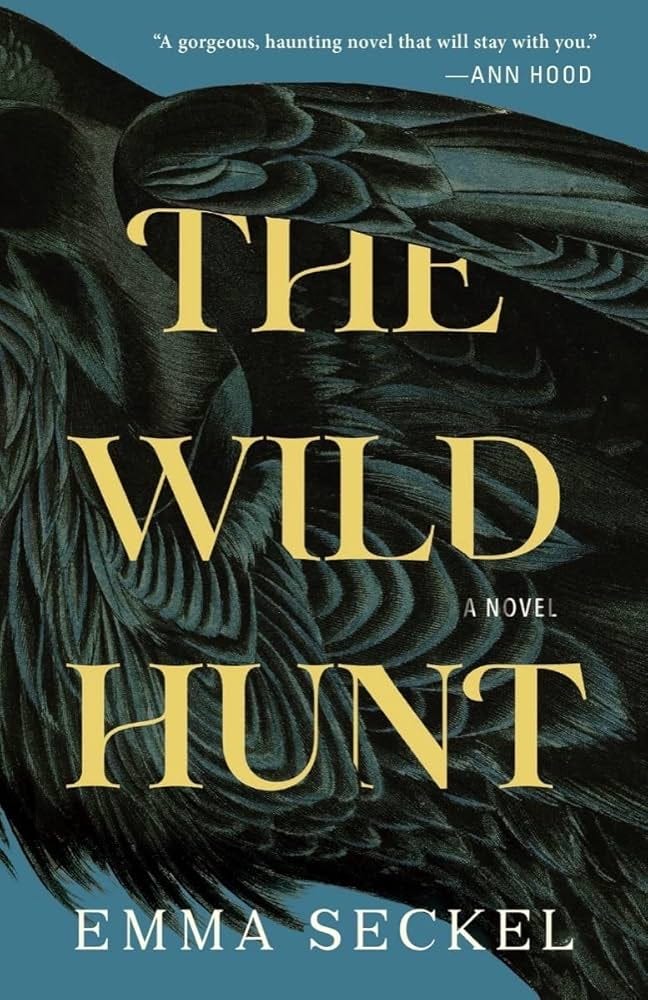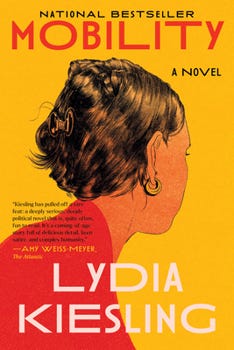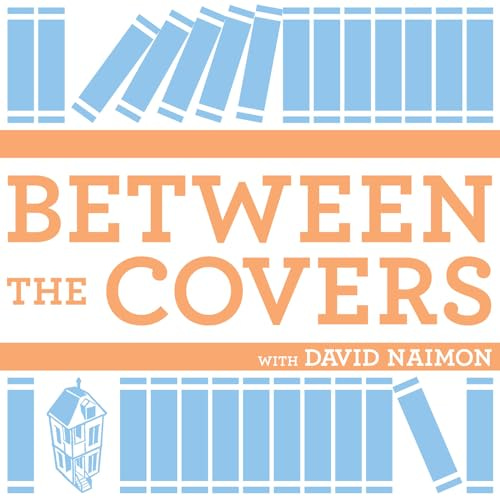AN EMERGENCY SESSION (ok, I'm being dramatic)
On Tin House being acquired by Zando; a mostly mild hot-take because I don't know any fine details except my own neurosis.
This is one of those times where I should probably keep my mouth shut, but I’ve never been very good at that (to mostly my own detriment). But listen, when one of my favorite independent presses is being bought out—we gotta talk about it. I am not on the inside of either press, I do not know their financials or financial predicaments, and while I’m a big fan of the editorial team at Tin House, I don’t know too much about their process other than having submitted to them as an agent, read a few books to consider for publicity, and being on a few panels with Elizabeth DeMeo, who I find to be so smart and enjoyable—if she’s not moving to Zando, editors, there is truly no one else I would want on my editorial team if I was building a small press.
Here is the Publishers Lunch announcement. I am especially interested in the language of “Zando’s own robust publishing infrastructure to enhance sales, marketing, and distribution efficiencies…” I don’t know that Zando’s model is working quite as efficiently as Tin House’s model (yet), they’re only three years old. I’ve seen them have successful books and unsuccessful books. They look and feel (to me) like a big press that does the same thing. I think The Centre by Ayesha Manazir Siddiqi was a pretty big book, but there are tons of books on the list I’ve never seen. Just like any big press. Not that I always see everything or I am looking for something specific, but we know the books that get big coverage and the books that don't. Their Instagram feed is full of good publicity, maybe I’m being an asshole when I say I don’t love this news. Maybe I’m just in a wait-and-see period.
The first thing you should know about this situation is mid-size presses basically don’t exist. It’s kind of a problem in publishing for the last few decades, once small presses get big enough, they’re bought out by the bigger presses. Which keeps the tiers quite stratified, where small presses have a bit of a range and big presses are big presses, but middle-range presses (think your Algonquin before they were bought out) get bought. So, I think of middle presses as Tin House, Catapult, Softskull, Graywolf, university presses (depending), and larger, university-associated or endowed presses. These are the folks fighting the good independent fight, but who have gotten large enough to compete with the bigger presses across marketing, sales, publicity—essentially, publishing outcomes. The range of small/independent presses is a RANGE, because it’s essentially small presses and then conglomerate, with not a lot in-between.
Tin House being bought is a travesty to me. It could have been bought by anyone and I would probably be down in the dumps about it, so I am not especially sad about Zando, but I am sad in general about another true independent press being acquired. NOW, for fairness sakes, Zando touts itself as an independent press, and it is independent from the conglomerates, but it is run by folks who left (or were left by) the conglomerates, and it is owned (in-part) by Rupert Murdoch’s daughter. See bios here.
Zando functions independently on the expertise (and … logistics) of the big four. So, it isn’t, to me, necessarily a true independent where a bunch of scrappy editors are coming together to build some sort of funky new press that wants to foster space where they see gaps in the market. I loved the recent interview in Literary Hub about Jackson Howard at FSG (who is an INCREDIBLE editor) about him having an “uncanny knack for discovering exceptional talent” when truly he has an uncanny knack for reading indie press books and knowing how to poach them for the big leagues. No judgment, he truly is exceptional, but let’s nod to the presses who published a ton of his list first.
I guess I am always on the side of giving independent presses their due. And of course I want rich people to generously fund the arts like we’re in the Great Gatsby green light but with the perception box debacle of Elizabeth Koch at Catapult, I am always feeling hairy about rich people starting presses, or funding presses. HAS ANYTHING COME OF THIS? Is the perception box a thing AT ALL since she shuttered one of the best magazines and fired amazing editors and publicists?
The whole schtick of Zando is that they use public figures as imprint-leaders and as ways to bring books to market. Here’s a good overview from the LA Times. Alongside Elisabeth Murdoch is a former CEO of 20th Century Fox, Stacey Snider, so someone very well connected in the film industry. And also Jane Featherstone who works television producing. You can imagine then, that film-adaptation would be a big part of Zando’s buying conversations. And this isn’t to say Claire Fuller’s Bitter Orange or Emma Seckel’s The Wild Hunt or Morgan Talty’s books from Tin House’s list shouldn’t be a film (my god, could you imagine—so good) but that’s not Tin House’s … well, they’re just not that commercial.
Also, what will happen to the Tin House poetry backlist, or poetry acquisitions at Zando, which does not buy poetry (right now)? All of those film connections could be great for the new Tin House imprint at Zando, but my fear is that … Tin House will be the one reimagined, not Zando, and not their expectations of what constitutes a Zando (film-adaption-ready?) project.
It’s actually very curious to me that they’re housed in New York and not LA as I feel like they could be an interestingly competitive west coast publishing house with the NYC houses. They could expand the regionality of big publishing, but here we are again, stuck in New York.
To give you an idea of other imprints: Sarah Jessica Parker has an imprint (we love her, queen of reading and wondering at her laptop), Gillian Flynn has an imprint, Lena Waithe has an imprint called “Hillman Grad Books,” and Crooked Media (the podcasting company—mostly) has an imprint. You might recognize Lydia Kiesling’s Mobility, which was published through the Zando / Crooked Media partnership.
Nothing wrong with any of these folks, but it goes to show the sort of book they might be interested in elevating. I love Riesling and I think she’s a deep thinker, and I believe she went this route for good reasons. So, to me, this is definitely a plus on the Zando side. But again, where does Tin House fit into all of this? Actually come to think of it Kiesling and Tin House are both Portland staples, so perhaps her publishing journey was a part of the considerations here. Honestly, it was probably money, but who knows.
I worry too about Tin House workshops (we have so few big workshops anymore that aren’t … weird?), David Naimon’s Between the Covers (my favorite podcast), and all other tentacles of Tin House Books. Though I do think they are quite separate, but still … still Tin House? We already lost the magazine, a real one, and now the imprint is being housed under what is arguably a highly-commercial house. Maybe the most commercial of houses? The … celebrity-house? John Legend having a book imprint, I just … all I can think about is that man pressing the button to turn his chair around on The Voice.
I’m also not sure these celebrity-endorsements are really working their sales. I wonder if it’s just the name behind the imprint that they expect to move the needle or if the celebrity is actually doing work behind the scenes to blow up the books. There isn’t really evidence of that for me, and I don’t believe name (of really anyone?) makes people buy books. Are we headed back into the blurb conversation here, let me U-turn. I guess I wonder if anyone really even understands that Lena Waithe is behind a book when they see it on a bookstore shelf, unless they’re already familiar with Zando and what they do. I truly did not know who had imprints there until I looked at the website for this very newsletter. So, what is the celebrity … doing? I think this is a question for larger publishing actually—what is ACTION and what is simply … labeling? performance? reliance on face and name?
Books are such a weird cultural object. No one knows how to sell them. Most of the ways we decide how to put money into them is all estimation and bet. And so we’re all out here sort of flailing around trying to build a perfect storm—the problem is we don’t really know what storm will work for what book, and it’s a big game—a game I love. A game I live for and pay my bills by. When I think I know something, I’m always surprised by what I don’t know. And maybe I know nothing here but a hot take.
But one thing I do know is that the publicity at Tin House was unmatched. Where I look for books at least, I saw Tin House books. What my friends are reading is Tin House books. The descriptions, the blitz of publicity, the careers of writers who started there or went there at some point are kind of unmatched and unparalleled. So, it would surprise me if it was for financial reasons that they needed to be bought out. It does not surprise me that another mid-size press, another good run (great run!) midsize press is being bought out. And who’s coming along? We don’t know. All it says is editorial director Maisie Cochran will remain (a genius, no doubt), but what does that mean for everyone else who has quite literally run one of my favorite presses of the last decade. Time will tell.
I wish I could say I felt like Zando was doing something different than what the big presses already do. But I haven’t seen the freshness of the celebrity-connection book really take off in a different way than say, a Flatiron or a Knopf. And I’d be sad if those imprints bought Tin House too. I want the haven for literary weirdos to stay weird, what can I say? I want the haven for weirdos to not just be another book imprint with a range of books that share neoclassical portrait covers and highlighter-colored, bold font for a title.
Maybe this just means there’s room for a new Tin-House-esque publisher. A new haven with new weirdos. Nothing I could want more.
As always, the Pine State calendar of events lives here, and you can buy our books here! You can also see what we’re working on and contact us through our website, Pinestatepublicity.com.
ICYMI: Nicole Graev Lipson is on fire (again) and you can see reviews in River Teeth and Hippocampus, and interviews in LA Review of Books (done by my friend Acree!) and What Fresh Hell, Keetje Kuipers Lonely Women Make Good Lovers got a starred review in Publishers Weekly, Against the Current reviewed Iris Jamahl’ Dunkle’s Riding Like the Wind: The Life of Sanora Babb & the book is a finalist for the Oklahoma Book Award, Catherine Weiss’ Big Money Porno Mommy got a shout out on the Pleasure Reading podcast, Jehanne Dubrow wrote about Ovid’s Metamorphosis and military marriage for Literary Hub, Lauren k. Watel is on WABE talking about Book of Potions, Diamond Forde interviews Rosa Castellano for Honey Literary, Margaret Ross’s Saturday is reviewed in Brooklyn Rail, and so much more on our Twitter & Instagram.









I'm so glad someone dug into this more. (Also surprised it's NOT getting discussed more, but maybe I'm not looking in the right places.)
i LOVE the way you're talking so honestly about what big money can't and probably cant do in publishing here ! my friend the wonderful novelist hilary plum & i talked about catapult and that huge money in fence a while ago https://fenceportal.org/literature-capital-catapult-and-the-kochs-a-dialogue/ i think this was before the big perception box announcement but it's all a blur lol